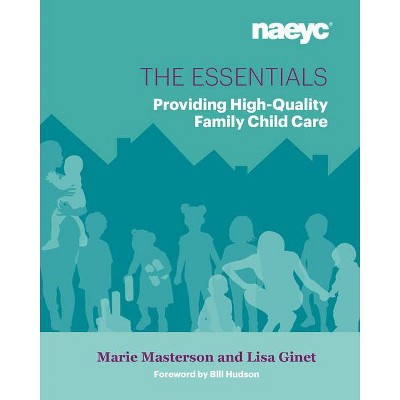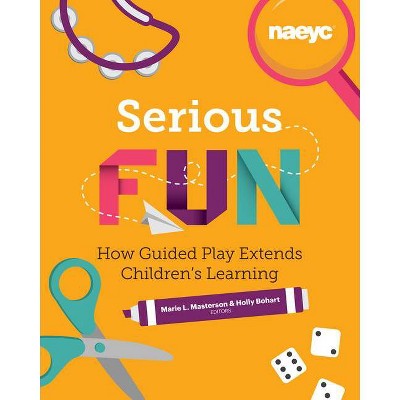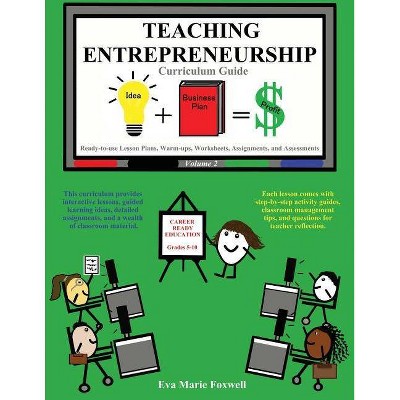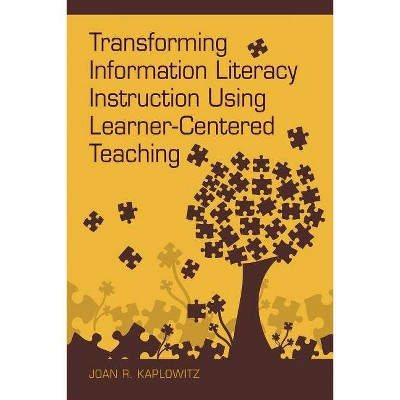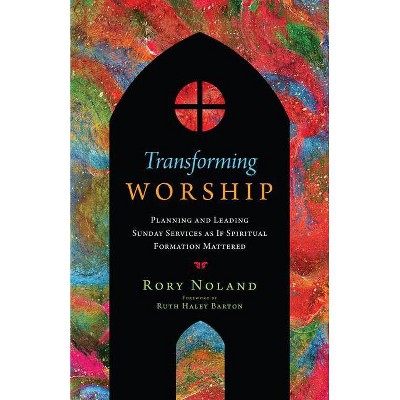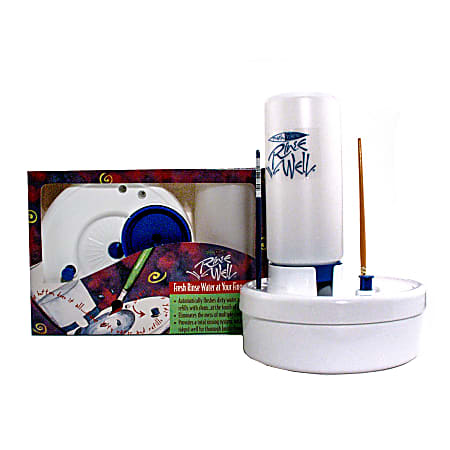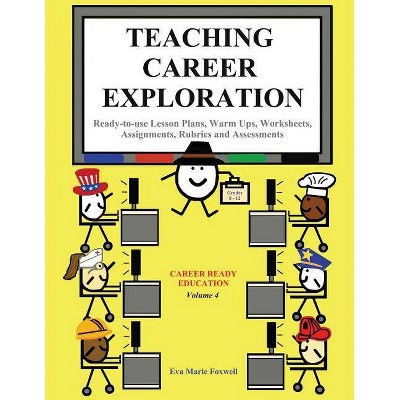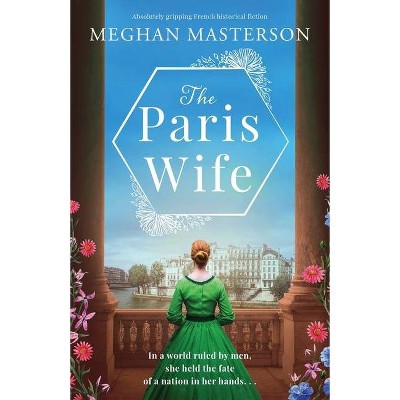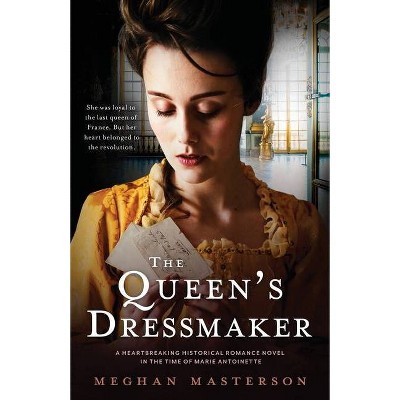Transforming Teaching - by Marie Masterson (Paperback)
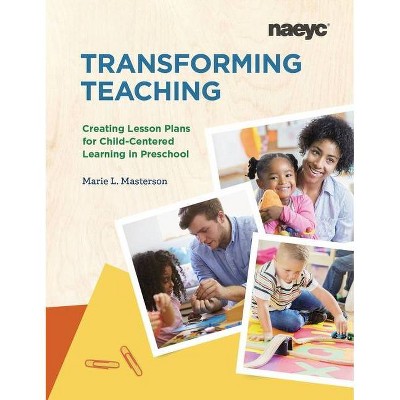
Similar Products
Products of same category from the store
AllProduct info
<p/><br></br><p><b> About the Book </b></p></br></br>"Child-centred lesson planning can have a daily positive impact on your time and energy and on the quality of children's learning and engagement - but it takes organization and a toolbox full of strategies and ideas. Whether you are just beginning your career in early childhood education or have many years of experience in the classroom. this book helps you to assess where you are and what you are doing and provides you with tips and resources to inspire create, developmentally appropriate teaching approaches." -- Provided by publisher.<p/><br></br><p><b> Book Synopsis </b></p></br></br><p><b>Child-centered lesson planning can have a daily positive impact on your time and energy and on the quality of children's learning and engagement--but it takes organization and a toolbox full of strategies and ideas.</b></p> <p>Whether you are just beginning your career in early childhood education or have many years of experience in the classroom, this book helps you to assess where you are and what you are doing and provides you with tips and resources to inspire creative, developmentally appropriate teaching approaches. </p> <p>In each chapter, you'll find <ul><li>Real-life examples showing what is possible when teachers work together to enrich and personalize teaching.</li> <li>Links to early learning guidelines and standards to maximize planning and communication</li> Ideas for dramatic play themes that relate to daily life, families, cultures, and communities</li> <li>Strategies to infuse rich vocabulary experiences that scaffold language development, support executive function skills, and strengthen self-regulation</li> <li>Tips to help you evaluate and adapt spaces and materials to address physical needs</li> <li>Examples for how to support dual language learners</li> <li>Ways to integrate family engagement as a strength and asset for development and learning</li></ul> <p><b>Book Features</b></p> <p>The following features invite you to dig deeper and apply what you read to your own setting: <ul><li><b>Daily teaching scenarios. </b> The illustrated classroom examples show teaching in action and represent a variety of pre-K settings and situations. Here, you will see the principles and strategies presented in practical and useful ways. </li> <li><b>Tips for Teaching. </b> This feature details practical skills to maximize your effectiveness in meeting children's learning and social needs. You will find ideas for preparation, observation, materials, vocabulary, supporting learning, encouraging children's choices, and making the most of teaching moments. </li> <li><b>Research Connections. </b> Each chapter introduces easy-to-relate research links between children's development and the activities and interactions that will strengthen emerging skills. These take-away anchors will ensure you know the latest information you need.</li> <li><b>Individualized Teaching. </b> This section will connect the development of children to their relationships with families, communities, and culture. You will find information about facilitating learning for children who are learning multiple languages. </li> <li><b>Balance Points. </b> This feature includes needed behavior supports for self-regulation, strategies to promote executive function, and mediation for stress and trauma. </li> <li><b>Ready Resources. </b> Sources for digging deeper are provided for early screening, adaptation for special needs, technical assistance networks, state early guidelines, creative activities, national organizations, and professional development opportunities. </li> <li><b>Helpful Hints: </b> Quick tips provide pointers to make lesson planning work for you. </li> <li><b>Links to NAEYC Program Accreditation Standards and Assessment Items. </b> This feature anchors curriculum planning, effective teaching, assessment, and family engagement to professional guidelines and high-quality practices. </li> <li><b>Sample lesson plans.</b> Examples with explanatory captions and comments show how to plan a schedule, play areas, prop boxes, book lists and themes, and detailed teaching plans with extensions for playful learning with individualized supports. </li> <li><b>Chapter reflection questions. </b>Practical applications at the end of each chapter will inspire your growth and may be used for personal or group study.</li></ul><p/><br></br><p><b> From the Back Cover </b></p></br></br><p><b>The goal of this book is to help teachers assess where they are in their current teaching goals and become more intentional and organized in planning. </b> Teachers can begin with tools they already have and build on previous activities that worked well. Great lesson planning helps teachers to choose a range of strategies that match what children are learning and doing-- from directed mini-lessons to facilitated group activities. Each chapter provides a wealth of tips and ideas. The strategies discussed in each chapter helps build a toolbox with tips that match each teacher's approach.</p><p>Child-centered lesson planning provides a system to strengthen teaching. In each chapter contains step-by-step hints and action steps to make the most of your unique setting. You will explore new ways to: <ul><li>Build on early learning guidelines and standards to maximize planning and communication.</li><li>Identify learning goals for materials, activities, routines, and interactions.</li><li>Design dramatic play themes that relate to daily life, families, cultures, and communities.</li><li>Infuse vocabulary to scaffold language development. </li><li>Support executive function skills and self-regulation.</li><li>Activate emotion coaching goals. </li><li>Evaluate and adapt spaces and materials to address physical needs.</li><li>Meet the linguistic and social needs of dual language learners.</li><li>Prepare meaningful and stimulating cognitive experiences.</li><li>Connect content skills, language, and literacy to dramatic play. </li><li>Integrate family engagement as a strength and asset for development and learning.</li><li>Communicate effectively with colleagues to ensure high-quality learning experiences. </li></ul><p>The NAEYC Early Learning Program Accreditation Standards and Assessment Items (2018) provide an important foundation for high-quality experiences for young children. The content and lesson planning information presented in this book align with the following NAEYC criteria: <ul><li><li>Standard 1: Relationships</li><li>Standard 2: Curriculum</li><li>Standard 3: Teaching</li><li>Standard 4: Assessment of Child Progress</li><li>Standard 7: Families</li></ul><p><b>Book Features</b></p><p>The following features invite you to dig deeper and apply what you read to your own setting: <ul><li><b>Daily teaching scenarios. </b>The illustrated classroom examples show teaching in action and represent a variety of pre-K settings and situations. Here, you will see the principles and strategies presented in practical and useful ways. </li><li><b>Tips for Teaching.</b> This feature details practical skills to maximize your effectiveness in meeting children's learning and social needs. You will find ideas for preparation, observation, materials, vocabulary, supporting learning, encouraging children's choices, and making the most of teaching moments. </li><li><b>Research Connections.</b> Each chapter introduces easy-to-relate research links between children's development and the activities and interactions that will strengthen emerging skills. These take-away anchors will ensure you know the latest information you need.</li><li><b>Individualized Teaching.</b> This section will connect the development of children to their relationships with families, communities, and culture. You will find information about facilitating learning for children who are learning multiple languages. </li><li><b>Balance Points</b>. This feature includes needed behavior supports for self-regulation, strategies to promote executive function, and mediation for stress and trauma.</li><li><b>Ready Resources.</b> Sources for digging deeper are provided for early screening, adaptation for special needs, technical assistance networks, state early guidelines, creative activities, national organizations, and professional development opportunities.</li> <li><b>Helpful Hints: </b> Quick tips provide pointers to make lesson planning work for you.</li><li><b>Links to NAEYC Program Accreditation Standards and Assessment Items.</b> This feature anchors curriculum planning, effective teaching, assessment, and family engagement to professional guidelines and high-quality practices. </li><li><b>Sample lesson plans.</b> Examples with explanatory captions and comments show how to plan a schedule, play areas, prop boxes, book lists and themes, and detailed teaching plans with extensions for playful learning with individualized supports. </li><li><b>Chapter reflection questions</b>. Practical applications at the end of each chapter will inspire your growth and may be used for personal or group study. </li></ul><p/><br></br><p><b> Review Quotes </b></p></br></br><br><p>This book encourages early childhood educators to deepen their teaching practice. It offers practical and applicable strategies to intentionally develop lesson plans that are culturally, linguistically, and developmentally responsive and to provide high-quality classroom learning experiences where "children recognize their experiences in the curriculum, materials, and activities."</p> <p>Dr. Masterson is an educator of educators and is an important voice in providing professional learning for the field of early childhood education and has written an anchor text for teachers and administrators, at all levels of their development, to build classrooms "for children to engage with peers and adults in meaningful learning throughout each day."</p>--Emily Simon "Chicago Public Schools"<br><br>I believe hands-on exploration is a major component in the early years. This book will be a great asset to educators everywhere. The examples of emergent teaching, individualized teaching, and teaching children with disabilities are great resources for assistant teachers.--Hope Cain "NASA Goddard Child Development Center"<br><br>Masterson's instructive book explores all facets of preschool lesson planning to energize intentional teaching, bridging the dichotomy between teacher and child-centered curriculum. Full of useful classroom examples and complete lesson plan samples, this book addresses planning for all developmental domains, all learner types, and all modes of child activity.--Michael Haslip "Drexel University"<br><p/><br></br><p><b> About the Author </b></p></br></br>Marie Masterson, PhD, is the Director of Quality Assessment at the McCormick Center for Early Childhood Leadership at National Louis University. She is a licensed early childhood teacher, a national speaker, child behavior expert, and author of multiple books and articles that address behavior guidance, parenting, early care and education, and high-quality teaching. She was previously a university professor in early childhood teacher education and early childhood specialist for the Virginia Department of Education.
Price History
Cheapest price in the interval: 30.49 on October 22, 2021
Most expensive price in the interval: 30.49 on November 8, 2021
Price Archive shows prices from various stores, lets you see history and find the cheapest. There is no actual sale on the website. For all support, inquiry and suggestion messages communication@pricearchive.us
